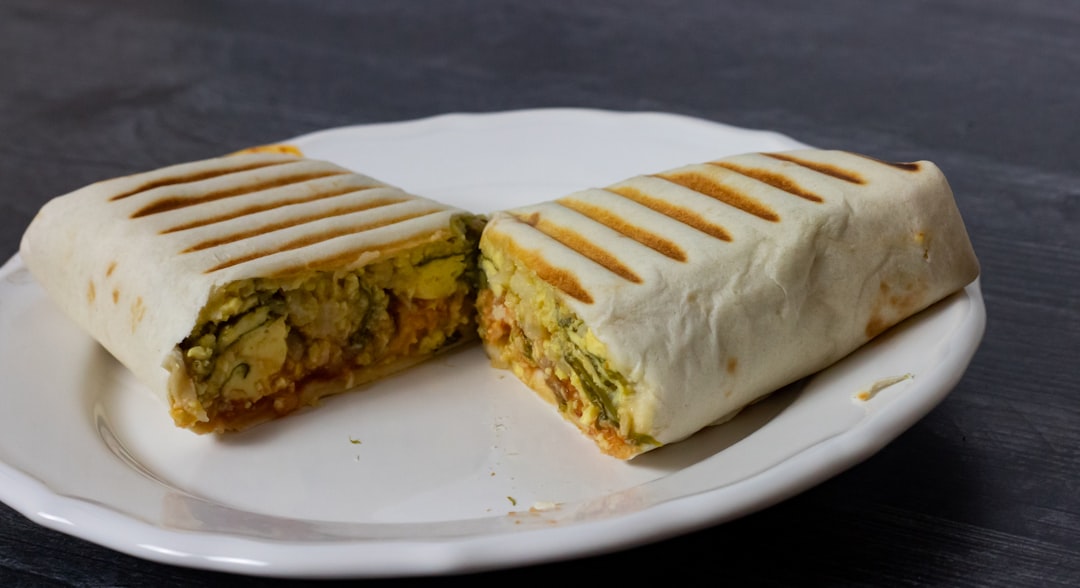PF Quick Hits: Breakfast Burritos Are Definitively Not a Good Pre-Run Meal
Plus something you may not know about that runner's high, and slumber-inducing beverage smackdown.

Once a week, usually on Saturday morning, I make the same order on Door Dash from a local restaurant: a breakfast burrito with bacon and spinach, complemented by a side of hash browns.
This weekly burrito consumption falls squarely underneath our “Fitness Fundamental” about being “diet friendly.” I enjoy the burrito, I want the burrito and I allow myself to eat it once a week. In fact, it’s become a running joke between me and my wife that I’m already pining for the burrito the night before.
I ordered said burrito yesterday just as my Arsenal football match was starting. I was so concerned about the Gunners impending match against Leicester City, I didn’t really consider what my wife and I had planned to do after said match: go for a long trail run. While I did eat my burrito (and hash browns) about two hours before we left for the run, it wasn’t the best decision I’ve made in terms of pre-training nutrition.
Not too long after we set out running, I started to feel bloated. Less than two miles in, I felt the early pangs of heartburn. While we ended up having a pretty good training run—we were really focused on working in some hills and elevation in preparation for an upcoming trail race we’re doing—it still wasn’t the most pleasant experience.
Later in the day, an article popped up in my newsfeed from an Australian outlet called Honey. It focused on what you should eat before and after a workout, and this quote from Hannah Gilbert, Director of Culinary Innovation and Operations at meal delivery service YouFoodz (LOLz), cracked me up:
“You should eat healthy carbohydrates that are high in fiber as these slowly release energy and lean protein, perfect for a workout.
“These foods can include whole grain cereal, whole wheat toast, whole grain pasta, brown rice, low fat or fat free yoghurt, fruits and vegetables. You should avoid saturated fats and most healthy proteins as these take longer to digest, taking away oxygen and blood from your muscles.”
My breakfast burrito seems to have missed the mark on multiple fronts, based on Hannah’s advice, including containing saturated fat and healthy proteins (eggs). Bacon and fried foods (the hash browns) also make lists of food to avoid before running. So it seems I’d chosen perhaps the worst possible meal before my run.
After reflecting on yesterday’s dietary distress, I realized that I’ve got to get myself back into the mindset of being a runner, too, and not just a cyclist. For me, cycling seems less hard on my digestive tract, as Jen Chamberlain and I noted on our recent podcast episode about gut health. So while I love weekly breakfast burrito, from now on, I won’t have it on days I’m running.
That means it’s back to my old school pre-running meal of choice: a bagel and peanut butter. What do you like to eat before a run?
Help us grow the podcast!
Jen and I took a creative break from the podcast this week, and we’ll be back this week with a big, debate-style showdown: gym memberships (Jen) v. home gyms (me). All we need is a super awkward preview visual to make this the most epic podcast ever.
We want to continue to grow the podcast this year and experiment with the format. One thing I love about podcasts is the creative freedom they afford. We’re planning to start having guests on some episodes in the near future. In some cases, we’ll interview experts on fitness topics for people over 40, but we also plan on showcasing people who have amazing fitness stories.
That’s where you come in: while we’re growing on Substack, we want to increase podcast listenership on other platforms, too. To do so, we need your help. If you listen to podcasts somewhere other than Substack, like Apple Podcasts or Spotify, it would be fantastic if you would take time to give us a brief review. We already have some amazing reviews, but the more reviews we get, the more the podcast will grow organically. Plus, this helps us get more guests interested in being on the show!
A fascinating fact about endorphins
Many of us have heard of endorphins—they are released by your body when you exercise and are responsible for the so-called “runner’s high.”
What I didn’t realize until I read this fascinating Slate article on exercising through pain, is that endorphins are actually opioids:
They bind to the same receptors as drugs like Vicodin and oxycodone, and have the same pain-relieving effects. Working out floods the body with natural opioids and anti-inflammatory chemicals.
These opioids are mood-boosting, and can act as an antidepressant. They also make exercise a powerful tool for recovery from chronic pain (which is distinct from acute pain, which signals that there’s an injury).
Who knew? I’ve always had a negative connotation about opioids given the ongoing opioid crisis, but the article cites research showing that our natural opioid production, spurred on by exercise, can be just as effective in healing chronic pain as prescription drugs, without the obvious risks.
Trouble sleeping? How about some…tart cherry juice?
Speaking of debate-style showdowns, the folks over at Well+Good hit us with a big one this week: tart cherry juice v. chamomile tea. Imagine those two drinks in a super awkward preview visual! No really, imagine it. Because I couldn’t find one on the internet, for obvious reasons.
Both drinks are evidently known for their sleep-inducing properties. Of course, achieving restful sleep is an important aspect of staying fit and can be a challenge as we get older.
In this showdown, there wasn’t a clear winner—it was more of a tie. According to Well+Good, tart cherry juice may be better if you don’t produce enough melatonin (aside: how would you know this? Is there a melatonin test? Wait, let me Google it…yes, yes there is.). However, if you tend to lose sleep due to stress or anxiety, chamomile tea may be better for your sleep.
My favorite part of this article was the giant disclaimer about possible downsides with each drink:
…Dr. Weiss mentions that both beverages have potential adverse side effects. “For example, tart cherry juice may cause constipation, diarrhea, excessive hunger, and memory loss,” she says. The sleep specialist also notes that people who take blood thinners (such as aspirin or cholesterol medication) should consult their medical provider before sipping on this natural sleep aid. “Chamomile tea may cause nausea, dizziness, vomiting, and in rare cases, anaphylaxis,” says Dr. Weiss. People with asthma—as well as women who are pregnant or breastfeeding—should take care to get their doctor’s clearance before integrating this drink into their bedtime routine.
I thought cherry juice and chamomile tea were pretty innocuous beverages, but turns out there are some pretty dire potential side effects. Next time I brew a cup of chamomile tea, I’ll be sure to keep my EpiPen nearby!
One other, less dangerous side effect they forgot to mention? If you drink a bunch of chamomile tea or tart cherry juice right before bed, you’re guaranteed waking up within an hour needing to go pee. Which sort of ruins the whole thing, don’t you think?


